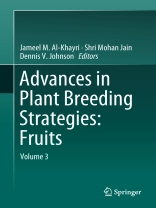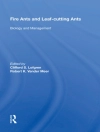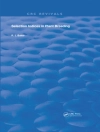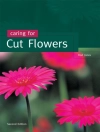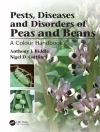This book examines the development of innovative modern methodologies towards augmenting conventional plant breeding for the production of new crop varieties, under the increasingly limiting environmental and cultivation factors, to achieve sustainable agricultural production and enhanced food security. Two volumes of Advances in Plant Breeding Strategies were published in 2015 and 2016, respectively; Volume 1: Breeding, Biotechnology and Molecular Tools and Volume 2: Agronomic, Abiotic and Biotic Stress Traits. This is Volume 3: Fruits, which is focused on advances in breeding strategies for the improvement of individual fruit crops. It consists of 23 chapters grouped into three parts, according to distribution classification of fruit trees: Part I, Temperate Fruits, Part II, Subtropical Fruits, and Part III, Tropical Fruits. Each chapter comprehensively reviews the modern literature on the subject and reflects the authors’ own experience.
表中的内容
Preface.- List of Contributors.- Part I. Temperate Fruits.- 1. Apple (
Malus spp.) Breeding: Present and Future;
S. Pereira-Lorenzo et al.- 2. Cherry Breeding: Sweet Cherry (
Prunus avium L.) and Sour Cherry (
Prunus cerasus L.);
L. Dondini et al.- 3. Mulberry (
Morus spp.) Breeding for Higher Fruit Production
; K. Vijayan et al.- 4. Pear (
Pyrus spp.) Breeding;
G.J. da Silva et al.- 5. Plum (
Prunus spp.) Breeding;
T. Milošević, N. Milošević.- 6. Quince (
Cydonia oblonga Mill.) Breeding;
S. Kafkas et al.- Part II. Subtropical Fruits.- 8. Cactus Pear (
Opuntia spp.) Breeding;
M.A. Mazri.- 9. Improvement of Fig (
Ficus carica L.) by Conventional Breeding and Biotechnology;
F. Aljane et al.- 10. Kiwifruit (
Actinidia spp.) Breeding;
Z. Hanley.- 11. Citrus Genetics and Breeding;
J. Cuenca et al.- 12. Advanced Innovative Tools in Lemon (
Citrus limon L.) Breeding;
I. Polat.- 13. Mandarin (
Citrus reticulate Blanco) Breeding;
M. Usman, B. Fatima.- 14. Strategies for Olive (
Olea eurpaea L.) Breeding: Cultivated Genetic Resources and Crossbreeding;
L. Rallo et al.- 15. Pomegranate (
Punica granatum L.) Breeding;
D. Holland, I. Bar-Ya’akov.- Part III. Tropical Fruits.- 16. Genetics and Breeding of Fruit Crops in the Annonaceae Family:
Annona spp. and
Asimina spp.;
J. Lora et al.- 17. Breeding of Coconut (
Cocos nucifera L.): The Tree of Life;
Y. Yang et al.- 18. Advances in Date Palm (
Phoenix dactylifera L.) Breeding;
J.M. Al-Khayri et al.- 19. Breeding of
Garcinia spp.;
H.N. Murthy et al.- 20. Mango (
Mangifera indica L.) Breeding;
I.S.E. Bally, N.L. Dillon.- 21. Genetic Improvement of Papaya (
Carica papaya L.);
F. Karambu Rimberia et al.- 22. Passion Fruit (
Passiflora spp.) Breeding;
C.B. Moreno Cerquiera-Silva et al.- 23. Genetics and Breeding of Fruit Crops in the Sapindaceae Family: Lychee (
Litchi chinensis Sonn.) and Longan (
Dimocarpus longan Lour.);
J. Lora et al.- Index.
关于作者
Professor Jameel M. Al-Khayri is a professor of plant biotechnology, Department of Agricultural Biotechnology, King Faisal University, Saudi Arabia. He received B.S. in Biology in 1984 from the University of Toledo, M.S. in Agronomy in 1988, and Ph.D. in Plant Science in 1991 from the University of Arkansas. He is a member the International Society for Horticultural Science and Society for In Vitro Biology as well as the National Correspondent of the International Association of Plant Tissue Culture and Biotechnology. His graduate work resulted in the establishment of in vitro regeneration protocols for spinach and zoysiagrass. For the last two decades, he dedicated his research efforts to date palm. He has authored over fifty research articles in referred international journals, over twenty review chapters, and co-edited several journal special issues and seven reference books on date palm and advances in plant breeding. He has been involved in organizing international scientific conferences and contributed numerous research presentations. In addition to teaching, students advising and research, he held administrative responsibilities as the Assistant Director of Date Palm Research Center, Head of Department of Plant Biotechnology and Vice Dean for Development and Quality Assurance. Dr. Al-Khayri served as a Member of Majlis Ash Shura (Saudi Legislative Council) for the 2009-2012 term. Currently he is maintaining an active research program on date palm focusing on genetic transformation, secondary metabolites, and in vitro mutagenesis to enhance tolerance to abiotic and biotic stress.
Professor Shri Mohan Jain is a consultant and plant biotechnologist, Department of Agricultural Sciences, University of Helsinki, Helsinki, Finland; received M. Phil, 1973 and Ph.D., 1978, Jawaharlal Nehru University, New Delhi, India. He was a postdoctoral fellow in Israel, USA, and visiting scientist/Professor in Japan, Malaysia, Germany, and Italy. He was a Technical Officer, Plant Breeding and Genetics, International Atomic Energy Agency (IAEA), Vienna, Austria, 1999-2005. He is a member of International Association of Plant Tissue Culture and Biotechnology; editorial Board member of Euphytica, In Vitro, Propagation of Ornamental Plants, Emirates J. Food and Agriculture, and a series on Forest Biotechnology. His publications are more than 160 in peer reviewed journals, book chapters, and conference proceedings, and edited 55 books; invited speaker and acted as a Chair person in several international conferences worldwide.
He was awarded Nobel Peace Prize, 2005 in commemoration the awarding to IAEA of the Nobel Peace Prize for 2005; also former consultant to IAEA, the European Union, The Govwernment of Greneda, Iranian Private Company and the Egyptian Government. Currently his research interests are somatic embryogenesis, organogenesis, haploidy, somatic cell hybridization, somaclonal variation and mutagenesis mainly in medicinal plants, date palm, and banana genetic improvement, genetic diversity, erosion, conservation, and utilization in the context of climate change and food and nutritional security.
Professor Dennis V. Johnson is a consultant and former university professor, he is a graduate of the University of California Los Angeles where he completed his B.A. (1966), M.A. (1970) and Ph.D. (1972) degrees in geography, with specialization in agriculture and biogeography. He has taught at several colleges and universities including the University of Houston, and was a visiting professor for two years at the University of Ceará, Fortaleza, Brazil. Dr. Johnson also has worked extensively with international development agencies providing technical assistance to agriculture and forestry on projects and programs in Africa, Asia, Europe and Latin America. He has published numerous articles on palm utilization and conservation and has edited or written books for FAO, IUCN and UNEP. He has also translated into English plant science books from Portuguese and Spanish. A decade ago Dr. Johnson began to focus his research on date palm, in particular its introduction to non-traditional areas such as Spain, North and South America and Australia. He co-authored a book on date growing in the USA and has made presentations at five international date palm conferences, and co-edited books on date palm, sago palm and plant breeding.
